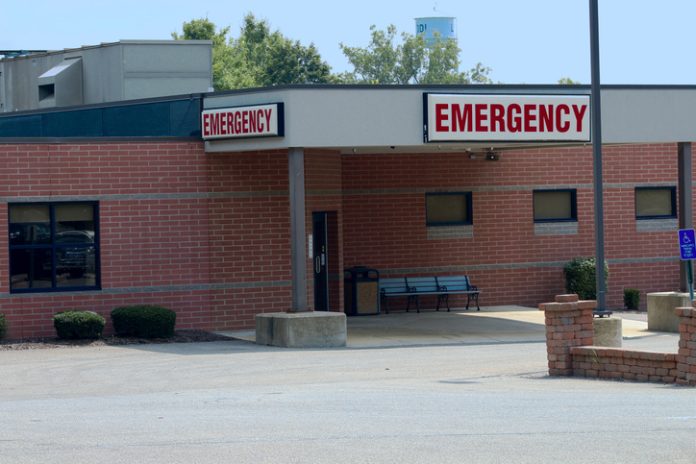By Hayden Dublois and Michael Griebrok
It’s been 10 years since Obamacare went into effect, and 10 states still refuse to accept its Medicaid expansion.
Texas, Florida, Tennessee, and the other holdouts face pressure to do so, especially after North Carolina folded last year, taking billions of dollars in federal taxpayer money in exchange for putting millions of people on subpar health insurance. But the holdouts have it right because Medicaid expansion is crushing hospitals—and forcing some to close.
That’s the conclusion of our new research. We looked at more than 4,000 hospitals nationwide, examining their federal filings to see how they fared financially. In 2013, the final year before Obamacare’s implementation, hospitals in expansion states reported just over $10 billion in losses due to Medicaid.
The most recent data, from 2021, show the shortfalls ballooning more than 115 percent, to $22.3 billion. By comparison, the shortfalls in states that didn’t expand Medicaid grew only 6 percent. When the data from 2022 and 2023 become available, they’ll likely show even bigger losses in expansion states.
Privately Insured Pushed onto Medicaid
Such massive red ink is written into Medicaid’s flawed design. The program reimburses hospitals a mere 78 percent of what Medicare pays for the same treatments and procedures, and 62 percent of what private health insurance pays.
Expansion pushes far more people off private insurance and onto Medicaid, meaning hospitals make less on the same patients they may have seen before. And they’re seeing far more Medicaid patients than expected. As of last year, nearly 20 million people received Medicaid through expansion nationwide, compared to initial state estimates of less than seven million. All of them are able-bodied adults. Total Medicaid enrollment is more than 90 million.
Hospitals must cover shortfalls, somehow, but they have no good options. They can lobby state lawmakers for more taxpayer funding, which is a challenge in an era of tight budgets. More likely, they’re raising the costs they charge to private health insurance companies. In other words, they’re forcing some patients to pay more because Medicaid expansion recipients pay less. That necessarily drives up the cost of health insurance, which rose 4 percent between 2022 and 2023 and another 4 percent heading into 2024.
Death Spiral for Hospitals
The soaring costs persist because Medicaid expansion continually shrinks the number of people on private health insurance. Every year, there are fewer people to stick with higher prices and more people paying less than the cost of the care they receive. There’s a name for that: a death spiral, and it is already killing hospitals nationwide.
In the South, Arkansas’s Crittenden Regional Hospital had a nearly $7 million surplus before Medicaid expansion. It closed in 2014 after profits turned to losses. In the Midwest, Illinois’s Westlake Hospital managed a surplus before expansion, but by 2019, a nearly $7 million loss pushed it out of business.
Rural hospitals appear to be hit the hardest. At least 12 have closed in expansion states despite promises from activists and experts that expansion would not only save rural hospitals but also add hospital jobs.
The facts haven’t stopped Obamacare advocates from demanding the 10 holdout states embrace this foolishness. The way they tell it, these states are heartless, leaving needy people out in the cold. Yet Medicaid expansion hurts the needy since it forces some of the most vulnerable patients to compete with able-bodied adults for the same care, making wait times and health outcomes worse.
Expansion Pushes Up Prices, Premiums
We estimate if those 10 states give in, at least 3.6 million people—mostly able-bodied adults—would be crowded out of private insurance and onto Medicaid. The resulting hospital shortfalls from these crowd-outs and the broader movement of Americans to Medicaid would be severe, jumping from $6.3 billion today to $13.2 billion after expansion.
That would mean even higher prices for private health insurance customers, even more pressure on hospitals, and, in time, more hospitals closing.
The only way to prevent this is to steer clear of Medicaid expansion, putting patients and taxpayers ahead of political demands. Ten years after Obamacare introduced that failed policy, the 10 holdout states have been vindicated, and they shouldn’t give in.
Hayden Dublois is the data and analytics director and Michael Griebrok (adam@thefga.org) is a senior research fellow, at the Foundation for Government Accountability. A version of this article appeared in The Wall Street Journal on March 8. Reprinted with permission.





















